Emmy Analysis: Who will win Outstanding Directing for a Limited Series or TV Movie?
 Thursday, August 12, 2021 at 10:19AM
Thursday, August 12, 2021 at 10:19AM 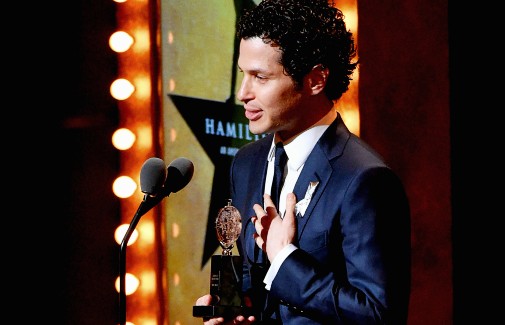
Like its respective writing category, the Outstanding Directing for a Limited Series or TV Movie Emmy race is a mess of inconsistent rulings. Some shows compete with entire seasons, while others have submitted individual episodes. This is allowed, so that miniseries with different directors per episode can compete. However, this year, I May Destroy You's Sam Miller got two nods through a technicality, making the rule feel superfluous and poorly conceived. Beyond that, the big oddity of the category is the presence of Hamilton's Thomas Kail. While similar projects of filmed theater were deemed TV Specials and are competing in that race, the Disney+ musical somehow got into this lineup. If he wins, Kail will repeat his Tony victory. With that out of the way, let's dive in and explore the nominated works…
Hamilton
Directed by Thomas Kail
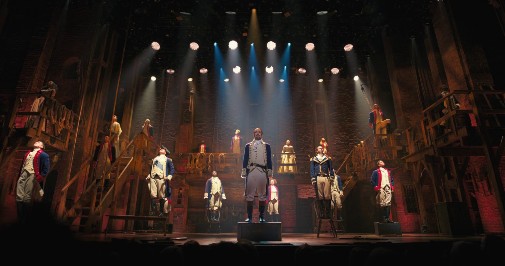
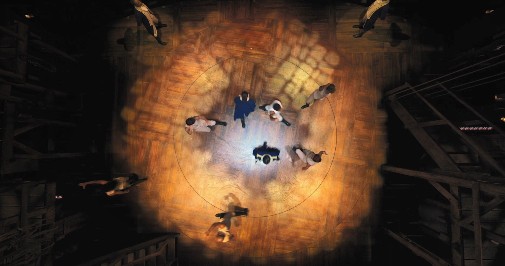
Description (from the ballot): Hamilton transports audiences into the world of the stage musical based on the story of American founding father Alexander Hamilton.
It's always challenging to evaluate the merits of what is, essentially, a recorded stage show. Usually, there are two directors whose work must intertwine and adapt. One directs for the live audience and another for the moviegoing spectator, for the camera. In that sense, Hamilton is a peculiar example of the genre, seeing as Thomas Kail took on the duties of sole director. This could elicit some hope that he'd be more open to modulate the original staging for the demands of the screen. Hamilton, however, doesn't feature much innovation, behaving like just another performance of the Broadway smash-hit while an assortment of cameras seeks to fragment the action in exciting angles. Watching the result of such efforts is pleasurable, but it's also aesthetically monotonous. Kail repeats the same visual strategies too many times, often employing over-head shots to spice up the pictorial rhythms and privileging frontal framings that replicate the proscenium. Repetition can be a powerful tool, but here it comes off as an accident.
Comparing his work to something similar such as Spike Lee's American Utopia, it's easy to spot a marked difference in approach. One director regards the stage as a space of infinite compositional possibilities, shot scales, and much more. Meanwhile, the other's work reveals limitations, unsureness about the filmed image's plasticity. Because of how out-of-place Hamilton is in this lineup, I hope it doesn't gather many votes. It shouldn't be competing here, robbing more meritorious achievements of their earned recognition. Yes, I'm still salty about all the Small Axe snubs.
"Ego Death" (Season 1, Episode 12) from I May Destroy You
Directed by Sam Miller and Michaela Coel
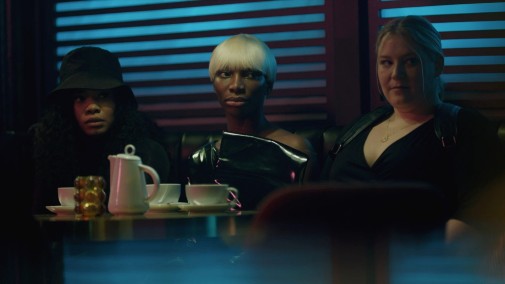

Description (from the ballot): Season finale. When Arabella's memory of January 22nd comes rushing back to her, she drags the last of her demons out from under the bed – once and for all.
The finale of I May Destroy You represents Michaela Coel's magnum opus at its most daring and narratively experimental. We've discussed the bravura writing before, but we should also pay special attention to the directing work. Managing an escalation of antithetical tones, each episode's segment varies radically compared to its brethren, and one often finds themselves being sucked in by a mounting sense of emotional vulnerability, spiky unease, or aggressive stylization. Especially at the beginning of each conjecture, it's fascinating to observe how Miller and Coel choose to alter the fundamental moments, weaponizing slight changes in pace and delivery to disconcert and contextualize, perchance decontextualize, the viewer. In this case, the repetition of compositions is a necessary constant.
Such aspects are connective tissue that delineates how real life and imagined catharsis are mirror images of each other, both reflection and distortion all at the same time. Despite all this, I May Destroy You is mainly talked about in regards to its writing, making a win here seem unlikely. Even so, if one episode from the show can scrounge up a victory, it's this one.
"Eyes Eyes Eyes Eyes" (Season 1, Episode 1) from I May Destroy You
Directed by Sam Miller
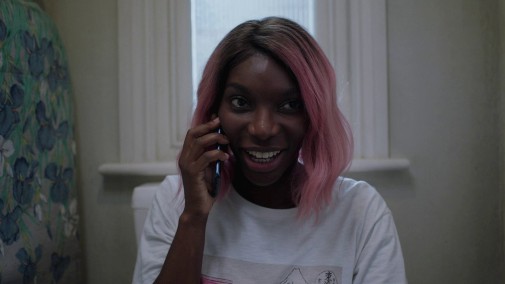

Description (from the ballot): Series premiere. After visiting her long-distance, Italian boyfriend, burgeoning writer Arabella returns home, where she's greeted with frantic messages from her literary agents. With hours to finish a draft of her second book, she plans to pull an all-nighter – but decides to join a friend on a night out.
If "Ego Death" is I May Destroy You at its most radical, "Eyes Eyes Eyes Eyes" is the show's most conventional hour. That's not bad, per se. It just means that this chapter ends up feeling, in retrospect, like a lot of table setting that draws the audience into a sense of passive comfort before spiking them with a traumatic climax. As beginnings go, it's perfectly functional and accomplishes everything such an introductory act is meant to do. Moreover, there's a sexually frank breeziness whose brightness lingers on the viewer, often accompanied by a feeling of faint yearning as we see Coel's Arabella rediscovering herself as a survivor. The erstwhile sunny notes of "Eyes Eyes Eyes Eyes" sing a siren song as their ghost persists in the memory, calling for us to reflect on what was lost, what changed, what will never be the same.
Again, I May Destroy You is generally seen as more of a writer's achievement than a directorial triumph. The presence of two ballots will split the votes, further diminishing the probabilities of victory. If passionate fans are going to rile up for the program, it won't be here. Consequentially, this is maybe the only nominee that feels DOA, even though the show is beloved by many.
Mare of Easttown
Directed by Craig Zobel
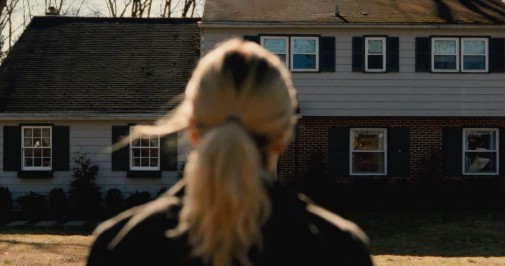
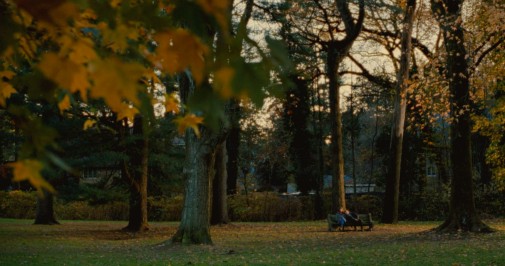
Description (from the ballot): As her life crumbles around her, a small-town Pennsylvania detective Mare Sheehan (Kate Winslet) investigates a local murder. The series explores the dark side of a close community and examines how family and past tragedies can define our present.
Craig Zobel's return to the realm of TV after the controversial release of The Hunt proves to be the director's most significant success to date. It's certainly his biggest mainstream achievement, seeing as it dominated pop culture for two months, spurred a great many theories, and reminded everyone that Kate Winslet is one of our best working actresses. Continuing from that last point, one could say that Zobel's contribution centers around his gift as an actors' director. His ability to guide casts to exquisite performances is commendable, for sure, but there's more to it than just that. Throughout Mare of Easstown, there's an elegantly understated sense of audiovisual precision, especially in how the director isolates specific figures, making it seem as if there are chasms of suffocating emptiness around them at all times, even when in a crowded room. This essential loneliness makes the miracle of human connection all the more miraculous, resulting in a final episode of devastating emotional resonance.
In a cruel ironic way, Mare of Easttown's greatest directorial blessing – that understated quality – might be its downfall. This particular Emmy race favors showy creations with widespread appeal, and this HBO hit feels a bit too content with its own smallness to be a slam-dunk choice. I'll be thrilled to be proven wrong, though. Even when some aspects of Mare of Easttown made me question its breathless critical reception, they were seldom related to Zobel's direction.
The Queen's Gambit
Directed by Scott Frank
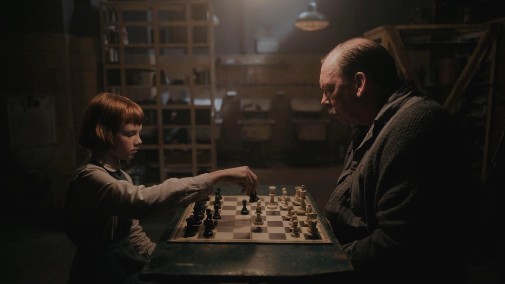
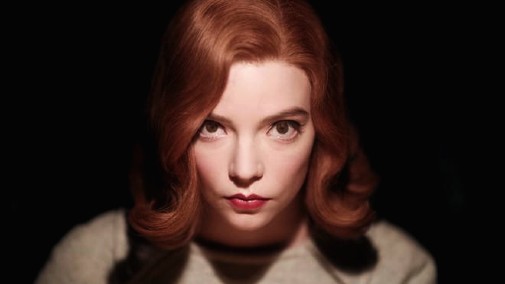
Description (from the ballot): In a 1950s orphanage, a young girl reveals an astonishing talent for chess and begins an unlikely journey to stardom while grappling with addiction.
In terms of showiness and mass appeal, The Queen's Gambit feels pretty unbeatable. It's even enshrined in airs of prestigious, important television that something like WandaVision lacks. That's not to say that Frank's work lacks merit and is the frontrunner simply because it ticks the right boxes. More than his writing, there's an alluring spectacle to Scott Frank's direction as well as a pondered sense of severity. One has to admire how well he assesses the latent iconography of his cast and settings, quickly establishing visual leitmotifs to which the series returns, each iteration vibrating with new theatricality. The many shots of Anya Taylor-Joy's symmetrical visage gazing at the board, her opponent, at the camera are incredibly efficient at suggesting a storming interiority without doing much in the ways of over demonstrativeness. It's almost Old Hollywood in that regard, considering the starlet as cameras once did Garbo.
Not everything works, and one wishes Frank had found ways of shooting chess matches with more variety and less obscuration. Even so, Scott Frank feels like the likely winner. He already triumphed at the DGA, a race where he beat both Hamilton and WandaVision.
The Underground Railroad
Directed by Barry Jenkins
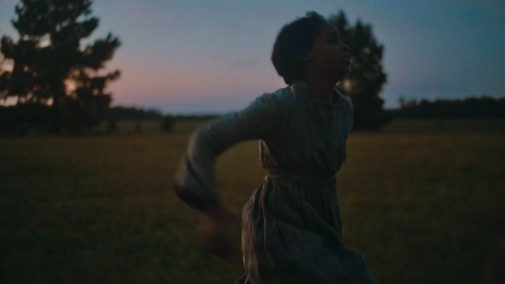
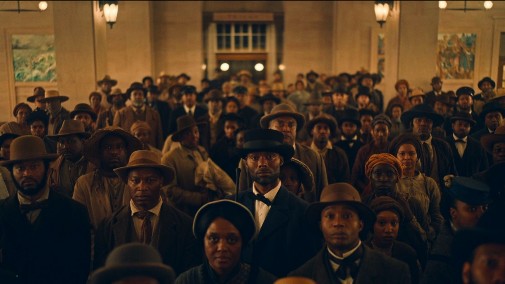
Description (from the ballot): Based on the novel by Colson Whitehead, The Underground Railroad chronicles Cora Randall's desperate bid for freedom in the antebellum South. After escaping a Georgia plantation for the rumored Underground Railroad, Cora discovers no mere metaphor, but an actual railroad beneath the Southern soil.
With nearly ten hours, Barry Jenkins' The Underground Railroad is the vastest production in contention for this word. But, of course, its epic scope extends far beyond such trivial matters as duration. Adapted from Colson Whitehead's Pulitzer Prize-winning novel, this story isn't a slave narrative in the conventional sense. Only the first, unrelentingly brutal episode matches that description. The later chapters expand the subgenre through a mixture of lyrical abstraction, evocative symbolism, and magical realism that twists history into historical fantasy. Jenkins' distinct style shines through all of the show, despite the material requiring many shapeshifting gambits. The director answers these challenges with impressive verve, finding tension in the absence of overt carnage, out-of-body ecstasy in a desperate escape. By varying focus depths, he even manages to finagle the point where historicism dissolves into oneiric reverie. Camera movements dictate much of the visual idiom, but so do the framing and direction of an actor's eyes.
In the last two episodes, this is evident through the mechanism of direct-to-camera gazes, a mainstay of the director's oeuvre. A transition from corn shucking-induced euphoria to meditative stares and a Debussy-scored love scene represents some of the best television of 2021, some of its most intoxicating filmmaking too. Such qualities, paired with the director's cinematic prestige and Oscar-winner status, might incline Emmy voters to pick The Underground Railroad. However, its lack of acting and writing nominations reduces the prospect of a win to wishful thinking.
WandaVision
Directed by Matt Shakman
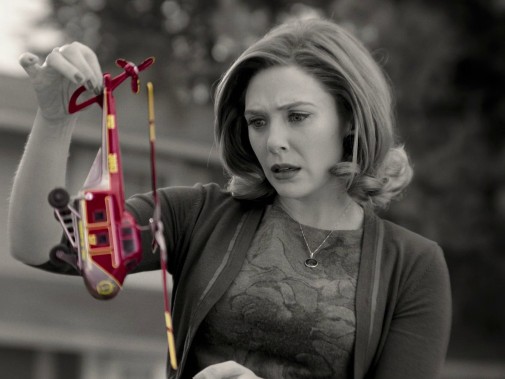
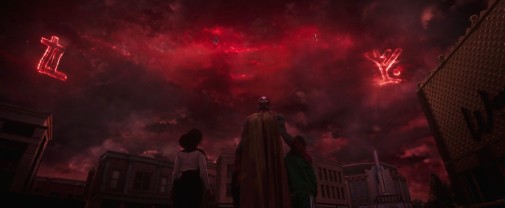
Description (from the ballot): After losing her love Vision, Wanda Maximoff undergoes a dissociative event and creates a world where he is alive, and they can start a family. Fueled by Wanda's comfort in sitcoms, her TV reality embodies an ever-manageable suburban existence, but when Wanda's denial is challenged, so is the reality.
In terms of its direction, WandaVision is a story of diminishing returns. The early chapters are frothy experiments in TV history pastiche, resurrecting old styles of sitcom and seeing them through the prism of the MCU's trademark digital big-budget filmmaking. The instants of disquiet are doubly intense because they break so thoroughly with the episode's general mood, suggesting an underbelly of angst that's barely contained by a surface of nostalgia. As that negative feeling takes over and the televisual reproduction gives in to expected Marvel dynamics, the show becomes increasingly uninteresting at an audiovisual level. It all culminates in another battle of CGI flares and stormy skies, an amorphous miasma of regurgitated ideas that doesn't possess half the character of those first episodes. It's a pity that, as the writing becomes more complicated and the performances thornier, the visual storytelling loses gas.
The thing about WandaVision is that those early episodes are catnip for TV lovers with a sentimental inclination towards old sitcoms. Considering how much the Academy still tries to nominate some multi-camera sitcoms every year, even changing the rules to ensure their prevalence, its voters are perchance the ideal audience for WandaVision's first few acts. That could be enough to produce a win, but Watchmen's loss last year indicates that this category might not yet be prepared to embrace superhero TV.
Predictions
- The Queen's Gambit
- Mare of Easttown
- WandaVision
- The Underground Railroad
- Hamilton
- "Ego Death" I May Destroy You
- "Eyes Eyes Eyes Eyes" I May Destroy You
Personal Ranking
- The Underground Railroad
- "Ego Death" I May Destroy You
- Mare of Easttown
- The Queen's Gambit
- "Eyes Eyes Eyes Eyes" I May Destroy You
- WandaVision
- Hamilton
Out of these contenders, who'd get your vote?



Reader Comments (9)
The absence of Steve McQueen is indefensible..
The Best Director nod for Thomas Kail should not be a surprise here. He is only previous winner in this category nominated this year. Emmy voters enjoy repeating themselves. He also is enjoying notoriety as the new husband of actress Michelle Williams, an unexpected result of their well received artistic collaboration on Fosse/Verdon. Discounting his chances would be an error.
If you replace Kail with McQueen, this would be the best category of the ceremony and I'd have an even harder time ranking the nominees. As it stands:
1) I May Destroy You (finale)
2) I May Destroy You (premiere)
3) The Underground Railroad
4) Mare of Easttown
5) The Queen's Gambit
6) WandaVision
7) Hamilton
4), 5) and 6) are basically tied for me.
Prediction: hmmm...if one of these shows sweeps, that's the one to pick here. Otherwise...?
Hamilton is such a stage show and it's a strong one. But, I think the only way it translate to film and impresses the same way live is if it's made into a full-length film. I'm happy so many of the actors were nominated for their performances, but I'm fine to see it lose here.
Shankman's work in Wandavision is really well done. I don't think it's easy sliding between those genres in the way he does. I can't think of many directors who excel at multi-cam and single-cam in the way that he does, while also being able to both shift tonally while pushing his actors to keep a thread of "out of placeness" throughout it all. I think he can also be forgiven for the final episode just being a pure fight episode - that's more of a producing and writing issue, and he handles the budget and the fight scenes well.
I think it's between Shankman and Frank, who both direct fairly flash series. However, I think Shankman had the much harder job, especially when you consider the MCU constraints he was under. I think Frank will win, but it's going to be a real race.
Lovely writing on IMDY’s directorial vision, especially its tonally daring finale. Mare of Easttown is perhaps my second choice, simply because of its ability to understand when it needs to sit for a beat or two longer. Its patience is such a virtue.
WandaVision is fun early on, but inconsistent in terms of which elements of its ‘eras’ it feels compelled to emulate. And the less said about all those SWORD segments the better.
The Queen’s Gambit does seem to have lost a little steam, or at least been reassessed as ‘flashy’ and ‘fun’ rather than truly exceptional, but you’re bang-on when you say it knows how to use its iconography.
Hamilton should lose all of its Emmys. That show is OVERRATED at its best.
Rooting for Queen’s Gambit here.
The absence of Small Axe is unforgivable. I'm going with LeWandaVishawn.
I agree. Hamilton will win nothing.
Good volume of work lately Claudio. Nobody can argue with that!